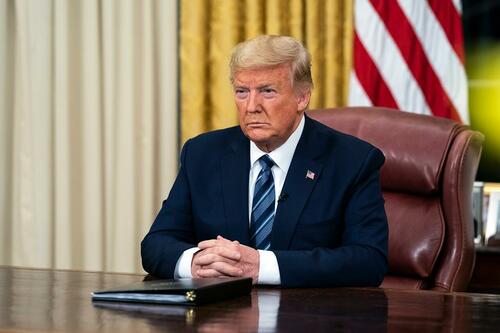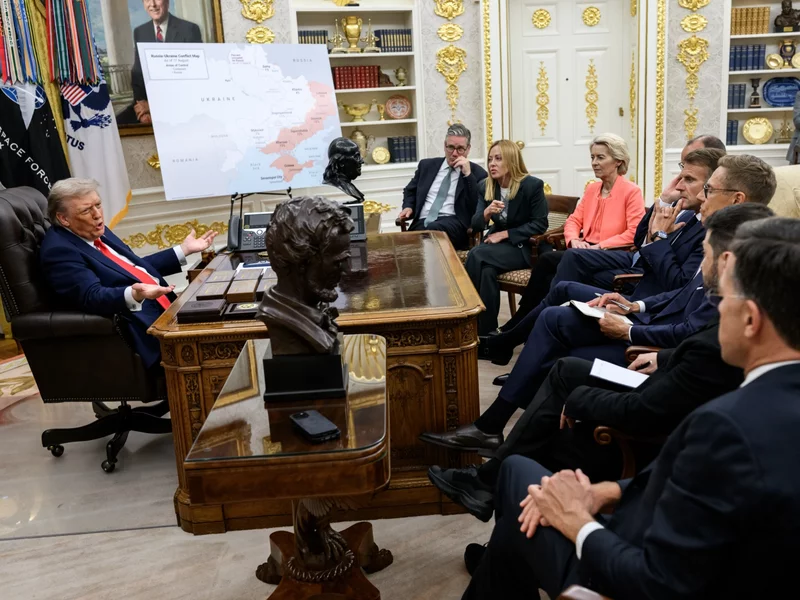
Washington Should Stay Out Of Israel’s New War
Authored by Alexander Langlois via RealClearPolitics,
Israel conducted an unprecedented attack on Iranian leadership, its military, and its nuclear program in the early hours of June 13, leaving the region on edge regarding a war many have rightly worked to avoid over decades. The operation raises more questions than answers, further highlighting the only rational path for U.S. policymakers: avoiding a direct war with the Islamic Republic.

Israeli officials claim to have hit over 300 targets across Iran via airstrikes, drones, and numerous clandestine operations within the country. Those targets include major Iranian nuclear facilities like the Natanz enrichment site, multiple nuclear scientists, and leading figures in the Iranian government and military. Israel announced that military operations will last multiple days.
Reports suggest that Israel assassinated the head of the powerful Islamic Revolutionary Guards Corps (IRGC) Hossein Salami, Chief of Staff of the general command Ali Bagheri, and additional general command officers. Ali Shamkhani, direct aid to Supreme Leader Ayatollah Ali Khamenei, also died from his injuries.
Ironically, Washington continued to call on Tehran to attend scheduled nuclear negotiations. U.S. President Donald Trump boasted about his apparent knowledge of the Israeli operation – reminding the Islamic Republic of a credible use of force.
Iranian officials called off the talks. Tehran opted to launch multiple waves of attacks at Israel in what could become a dangerous escalatory spiral.
Whether or not U.S.-Iran nuclear negotiations continue or restart remains to be seen. Trump is wise to publicly push diplomacy amid an incredibly unstable and unpredictable situation, but he is doing so in a way that directly ties Washington to Tel Aviv’s attack. Worse, it poisons the well from the beginning, highlighting to an already skeptical Tehran that this administration cannot be trusted.
That dynamic is why any decision to latch onto Israel at this moment is ultimately foolish. Time and again, Iran has proven that it associates Israeli and U.S. military actions against it as one in the same.
Reinforcing that conclusion puts U.S. troops in harm’s way and risks drawing Washington into a conflict with Tehran – the opposite of a core U.S. national interest. It also contradicts the U.S. public, who for years have rejected new Middle East wars.
Some experts argue that Tehran is disinterested in a wider conflict it knows it will lose. While that is certainly a possibility given Iranian officials care first and foremost about regime survival, it is not rooted in guarantees. Rather, it risks misinterpreting the Islamic Republic’s aggressive behavior – particularly when attacked or faced with existential threats.
That reality is particularly important when considering the personal dynamics at play among Iranian leadership. Iran’s senior leaders have together held prominent positions for decades, going back to the 1979 revolution and its defining 1980s war with Iraq – the latter of which impressed a siege mentality upon much of Iranian society. Officials should be concerned about personal dynamics and past traumas coming to the fore given Israel’s ongoing threat and Iran’s losses, as the assassination of former IRGC-Quds Force head Qassem Soleimani highlights.
Ultimately, U.S. officials must consider the risks associated with these unknowns, especially given Washington’s close relationship with Israel. Government handles a portfolio of risk, in which citizen security is paramount. Risking U.S. lives on a hunch that Iran will target them, all backed by a supposed partner’s unprecedented military operations this administration seems disinterested in reigning in, is extremely poor management of that risk.
In this regard, it is critical to highlight that the United States cannot be “drawn into” a conflict that it has already participated in for years. Israel’s strikes on Iran are the direct result of U.S. backing – diplomatically and militarily – which lowered Israeli perceptions of costs and perceived risks of an assault on a country substantially larger than itself. This constitutes a classic moral hazard common across U.S. bilateral relationships with partner states in the region.
Herein lies the key to preventing a broader conflict – a real possibility should both parties continue to climb the escalatory ladder. Just as Washington has the capacity to embolden Tel Aviv, it also has the influence to hold it back. The Trump administration failed to properly restrain Israeli Prime Minister Benjamin Netanyahu – a political choice shared with former president Joe Biden and numerous previous administrations. But it can still right the ship.
Trump must not join this conflict. His administration should not lean into escalatory rhetoric. It must not empower Israel to continue its attacks on Iran – effectively the latest iteration of the already-failed “maximum pressure” strategy of Trump’s first term.
The alternative to any of these actions only associates Washington ever more closely to the belligerent of a conflict, in which the other party – Iran – views the United States and Israel as the same enemy. That is the opposite of a supposed peace presidency, gambling U.S. lives and risking a disastrous war.
Alexander Langlois is a Contributing Fellow at Defense Priorities.
Tyler Durden
Wed, 06/18/2025 – 22:35

 5 miesięcy temu
5 miesięcy temu












